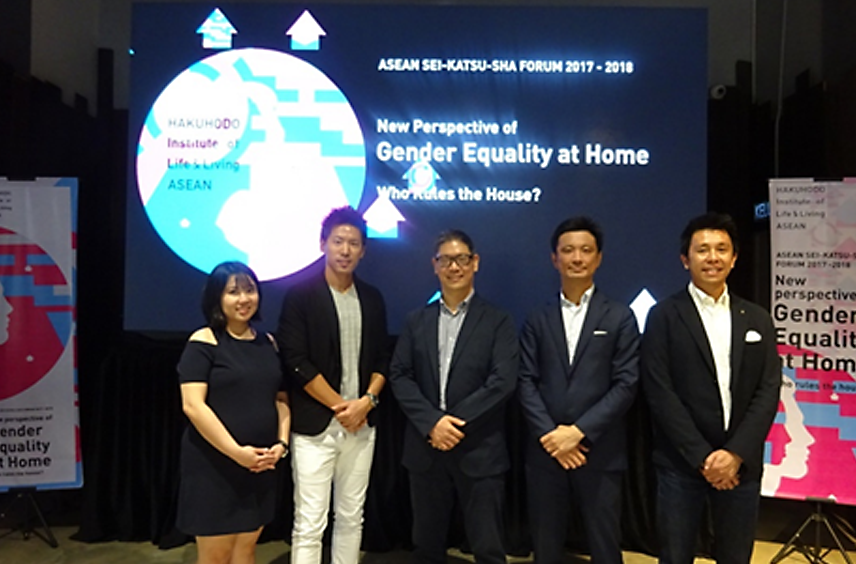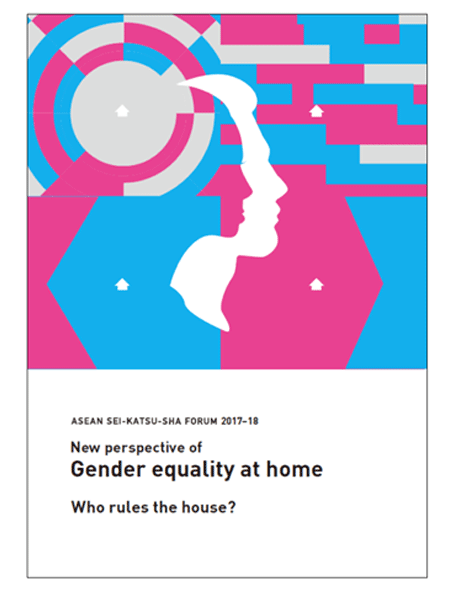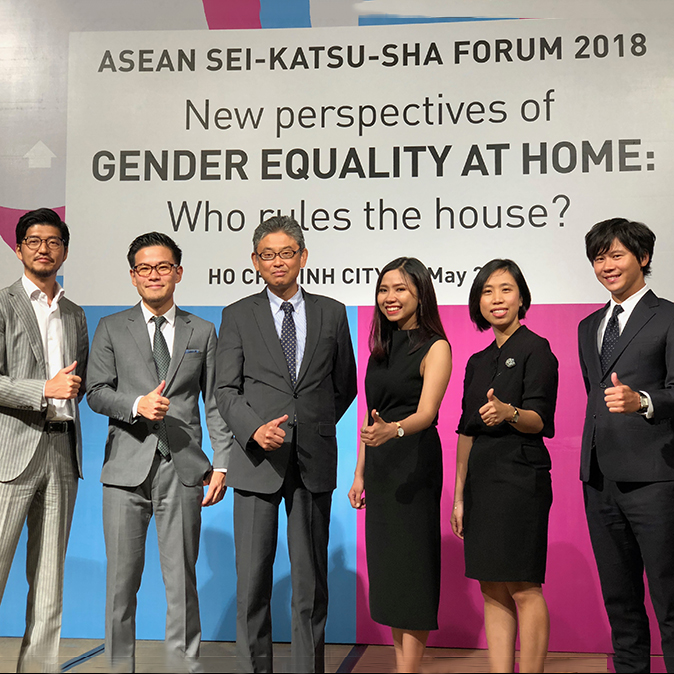- News
- Research
- Events
- HILL
New Perspective of Gender Equality at Home: Who Rules the House? And how brands should adjust their marketing direction in this new age
A comparative study of the actual gender equality situation in households in 5 ASEAN countries including Malaysia

Kuala Lumpur—April 10, 2018—Hakuhodo Institute of Life and Living ASEAN (HILL ASEAN) a think tank established in Thailand in March 2014 by Japan’s second largest advertising company, Hakuhodo Inc. (Hakuhodo), today announced findings from its latest research into ASEAN sei-katsu-sha*.
*Sei-katsu-sha is a Japanese term describing more than simply consumers, just as people’s lives and lifestyles include more than just shopping. Hakuhodo introduced this term in the 1980s to emphasize its commitment to a comprehensive, 360-degree perspective on consumers’ lives.
Gender inequality is still in the spotlight as a social issue; it persists everywhere and stagnates social progress. The United Nations highlighted six areas where work needs to be done in relation to gender equality: education, health, identity, work, violence, and politics. Unfortunately, gender equality rankings in the World Economic Forum’s Global Gender Gap Report 2016 imply that ASEAN countries still lag behind in terms of gender equality. This presentation served to better understand if this lag also applies to actual ASEAN households.
In this study, HILL ASEAN analysed the perspectives of couples in ASEAN nations, focusing on the division of roles between husbands and wives and how couples make decisions in their household, to better comprehend the actual gender equality situation in ASEAN households. The study revealed that traditional households, where the husband works outside and the wife takes care of the home, are now in the minority. Roles in the majority of ASEAN households today are shared between husband and wife; they work and share household roles equally.
The study identifies three household types: Traditional, Sharing, and Switched.
It revealed that in Malaysia, 79% of households belong to the Sharing type, demonstrating that household roles and responsibilities are no longer divided based on conventional ideas about gender. Twenty percent belong to the Traditional type, where the wife is the homemaker, and 1% of households are Switched, where the traditional roles are reversed and the husband is responsible for household chores instead of the wife.
The analysis also identified three main reasons that explain why the majority of households are Sharing: (1) Both husband and wife work, (2) Female empowerment, and (3) Technological advancements that help blur gender boundaries.
Alongside these reasons, the analysis revealed that Sharing households had the highest satisfaction percentage, scoring a total of 83% satisfaction, compared to 72% for Traditional households and 65% for Switched households.
Couples in Sharing households also share the smallest gap in satisfaction between husband and wife, scoring a 12-point gap, compared to 18-point gaps for both Traditional and Switched households.
These findings have profound implications for anyone trying to interact and market products to couples from the various household types. Compared to old ideas about the genders that gravitate toward a more traditional household type, current practise favours shared roles.
Marketing approaches based on traditional ideas about gender may no longer be most suitable for today’s ASEAN families. New approaches that consider the reality of working wives, husbands that cross gender boundaries and actively participate in household chores, and joint decision-making in purchasing may be required.
A seminar and networking lunch to share these findings and their implications on marketing strategies in the ASEAN region was held at The Gasket Alley from 11 am to 1 pm.
Entitled “New Perspective of Gender Equality at Home: Who Rules the House?”, the presentation, which was based on in-depth qualitative and quantitative research in Malaysia and four other ASEAN markets, revealed the roles of husbands and wives in ASEAN households and how couples make purchasing decisions.
For more details on the full presentation, please visit the HILL ASEAN website at: http://www.hillasean.com/.















